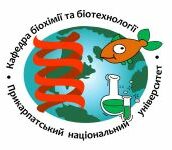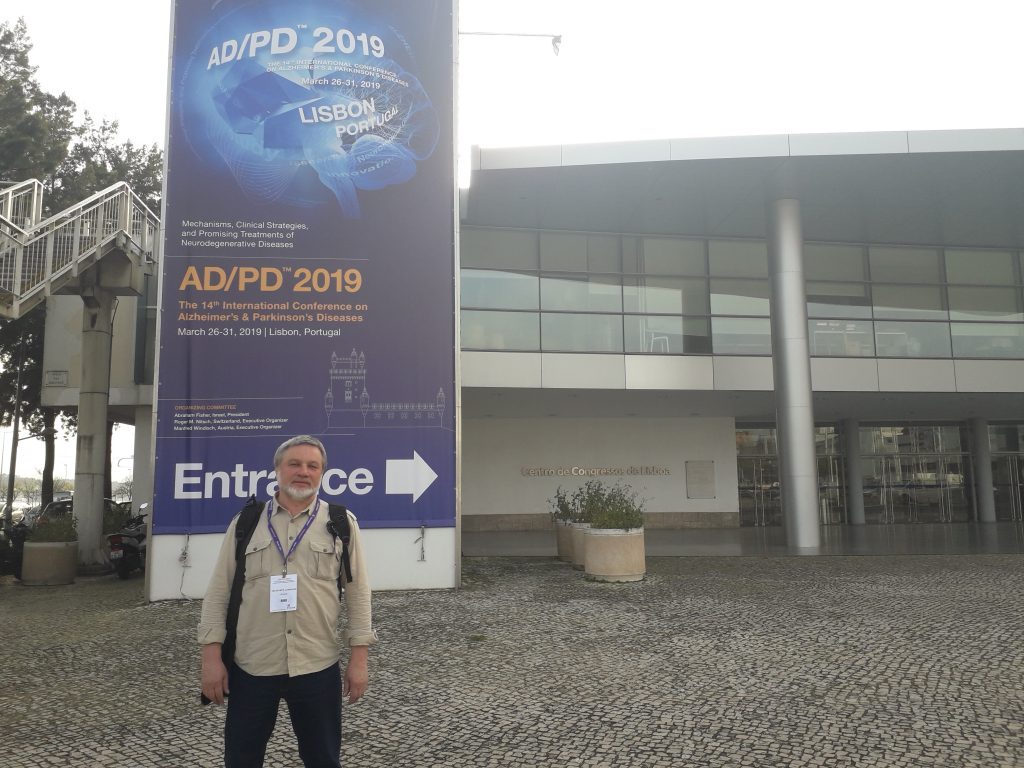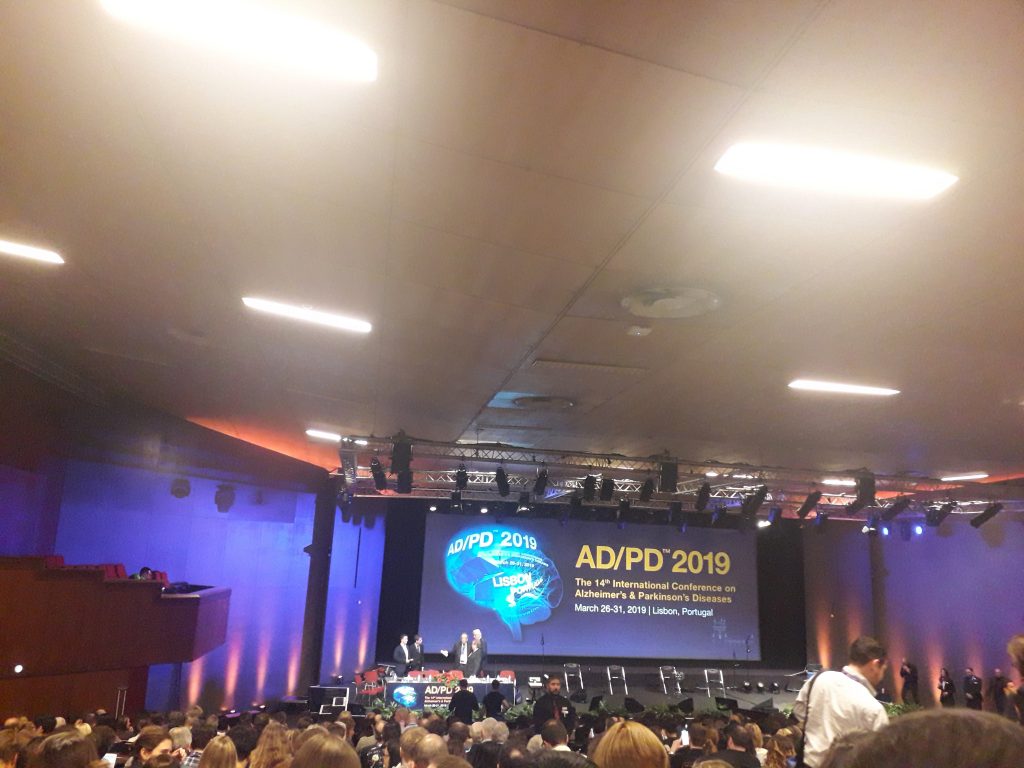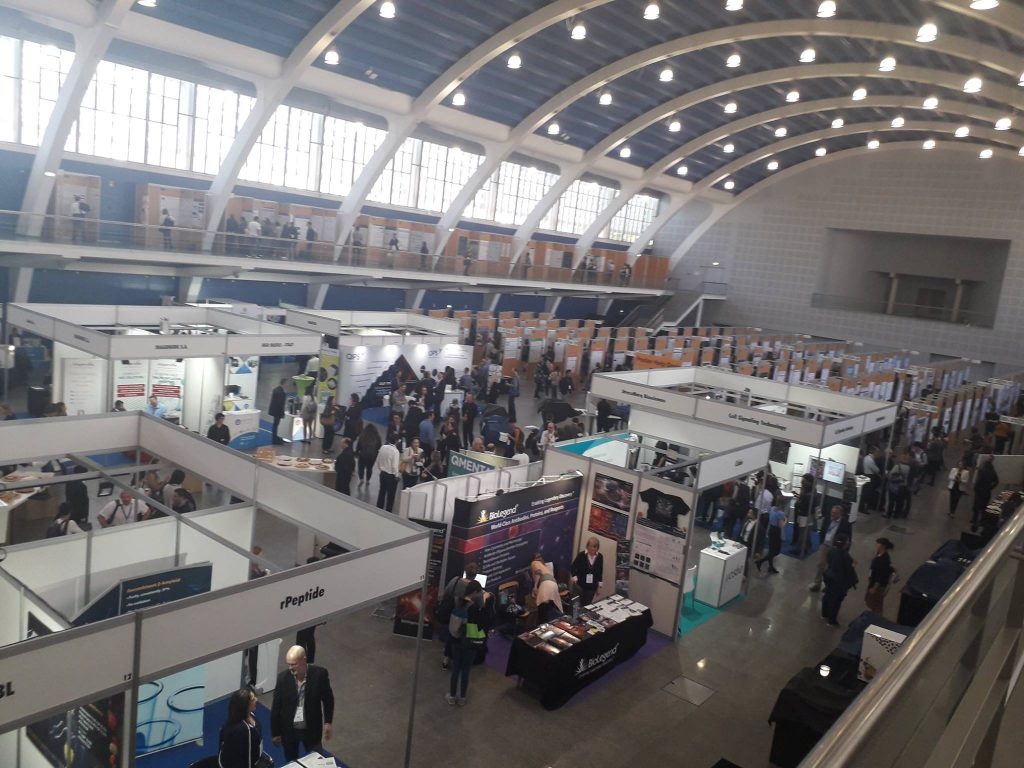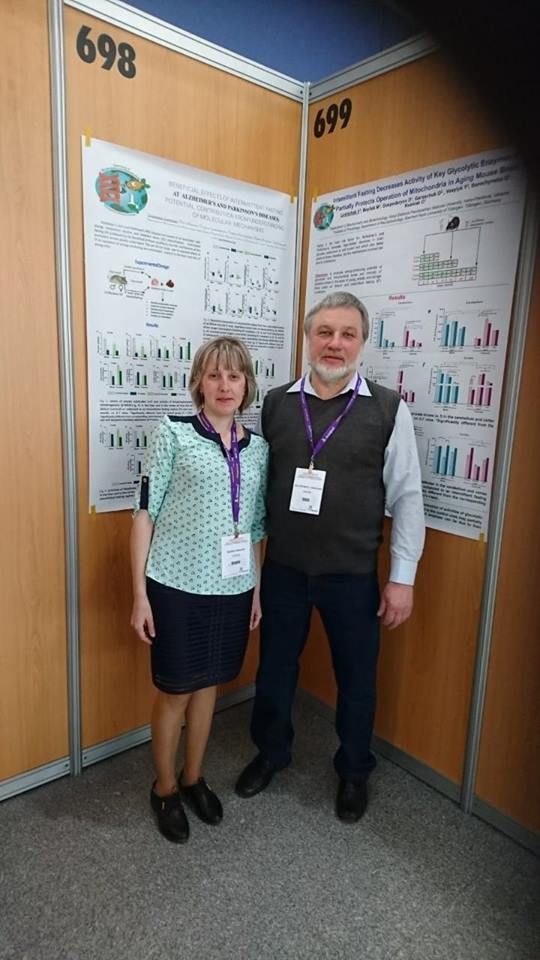During March 26-31, 2019 the 14th International Conference on Alzheimer’s and Parkinson’s Diseases and related neurological disorders took place in Lisabon (Portugal). At the conference, Head of Department of Biochemistry and Biotechnology, Professor Volodymyr Lushchak and Dr. Maria Baylyak presented the results of research carried out within the framework of the joint Ukrainian-German project “Cellular mechanisms of healthy aging of the brain under the conditions of caloric restriction”. The presented results concerned the effects of intermittent fasting on energetic and free-radical processes in the aging brain. The groundbreaking series of Alzheimer’s and Parkinson’s Diseases Conferences attract international medical and scientific professionals worldwide. More than 3800 participants from 73 countries took place in the AD/PD-2019 conference.
The continuing success of the AD/PDTM meetings is the result of several key ingredients:
- A high-quality scientific program covering most recent research, developments, and treatments, with emphasis on overlaps and congruent results among AD, PD and related neurological disorders.
- A multidisciplinary mix of participants representing both clinical investigators and basic scientists; as well as both established investigators and young upcoming talents.
- The attraction of industry companies involved in the development and production of drugs and tests for the diagnosis and treatment of neurodegenerative diseases.
The conference program included three pre-conference symposiums, plenary reports, sectional meetings, exhibitions and industry symposiums, and poster sessions. Plenary lectures were especially interesting and informative. There were lectures of German Professor Christian Haas (Ludwig Maximilian University of Munich, “TREM2 – from basic mechanisms to human patients” on the role of various variants of the TREM2 receptor protein in the formation of amyloid plaques), American Professor Beth Stevens (Harvard Medical School FM Kirbi of the Boston Children’s Hospital of Neurobiology, “How microglia wire and unwire the brain”) Swiss professor Rachell Doody (Roche/Genentech, “What works and doesn’t work in AD” on the effectiveness of the use of biomarkers, mono- and polytherapies and in the treatment of neurodegenerative diseases, on clinical populations and placebo effects), German-American biochemist and neurobiologist Thomas Zudhof (Professor of Stanford University, Nobel Prize in Physiology or Medicine in 2013, «The cell biology of synapse formation and synapse degeneration»).
In general, the conference was very productive in terms of enriching new information and new ideas for further research.
